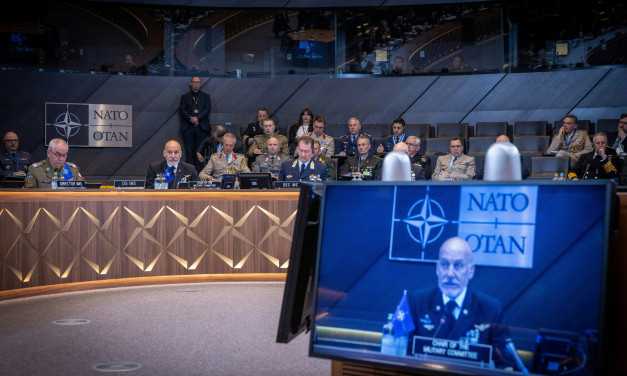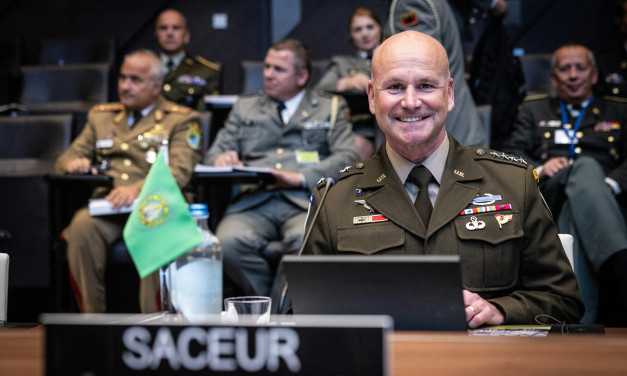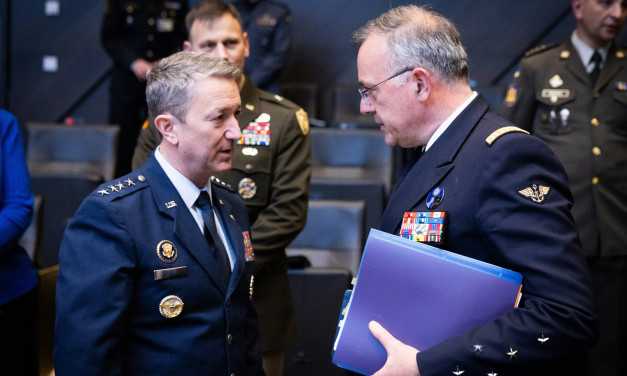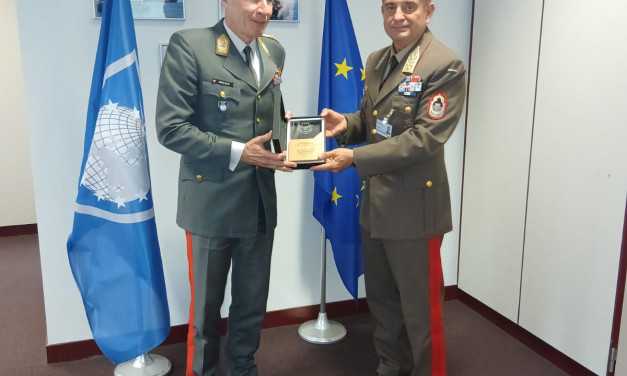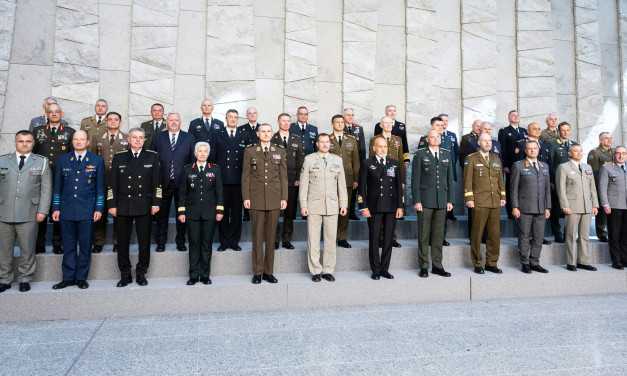Security and Europe’s defence are paramount
Text: HDF DS SCD | Photo: NATO, HDF DS SCD | 14:27 May 19, 2025Almost one month before the key NATO Hague Summit, chiefs of defence of the North Atlantic Alliance and then those of the European Union met in Brussels to discuss the security situation in Europe, with special regard to the Russo-Ukrainian War.
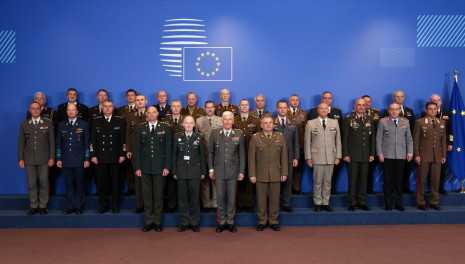
At both meetings, General Dr. Gábor Böröndi, Chief of HDF Defence Staff informed the defence chiefs of member states about this year’s largest NATO and whole-of-government exercise, Adaptive Hussars 25, which involves all units of the Hungarian Defence Forces and assigns significant roles to the NATO elements stationed in Hungary, among them the NATO Forward Land Forces Battle Group (FLF BG), the Székesfehérvár-based Headquarters Multinational Division Centre (HQ MND-C), which recently achieved full operational capability, as well as the NATO Force Integration Unit Hungary (NFIU HUN).
At the meeting of NATO’s Military Committee, the 32 Allies discussed the effectiveness and up-to-dateness of the defence plans, and the question of what needs to be done to further strengthen the Alliance’s deterrence and defence capabilities in the interest of adapting to security challenges.
In his opening remarks of the working session, Admiral Giuseppe Cavo Dragone, Chair of the NATO Military Committee emphasized that cohesion among the allied militaries is the “bedrock” of NATO’s collective defence, and the meeting of chiefs of defence “exemplifies the lasting “strength and solidarity of our Alliance”. General Böröndi said that the participants had concluded that NATO’s defence plans are effective, viable and guarantee Europe’s security, including that of Hungary. The continuously developing Hungarian Defence Forces are a stable part of that guarantee. Based on discussions and coordination, it has become clear that “the United States continues to be a committed member of NATO, but we must also expect it to reposition certain capabilities to other areas” – he said.
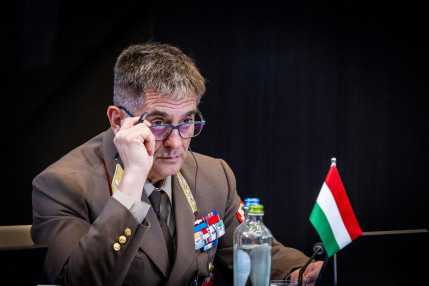
Defence industry and military operational capabilities were also high on the agenda of the European Union Military Committee’s session. General Böröndi emphasized that the EU also pays special attention to defence, mainly to increasing defence industry capacities, the coordinated procurement of defence equipment and the establishment of an effective and combat-ready force which provides a real security guarantee to all member states. “Hungary has done a lot to establish the European strategic autonomy” – pointed out the Chief of Defence, adding that Hungary has developed defence capabilities and conducted exercises and training events in the interest of making the defence forces of the European Union even more effective.
According to General Böröndi, it is clear that security and the defence of Europe are top priorities at the levels of NATO and the EU. Hungary is a reliable and active member of both alliances. Out of 27 member states of the European Union, 23 are also members of NATO. General Robert Brieger, the outgoing Chairman of the European Union Military Committee warned that “Europe is at a crossroads. The threats we face are real, complex and interconnected.” He pointed out that European states should precisely identify the role of their armed forces in the defence of the continent. He reiterated that the EU must cooperate with NATO, but it should also do more for its own defence, all the more so because the Unites States is going to assert its power in the Indo-Pacific region.
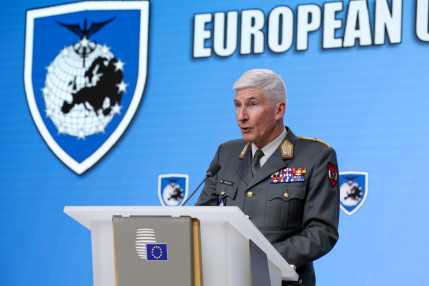
General Brieger – who is to relinquish his post to Irish Lieutenant General Seán Clancy in two weeks – said that responding to the threats “requires more than declarations – it requires political will, unity and the means to act. A strong Europe must be a secure Europe. Moreover, a secure Europe must take its defence and global role seriously” – he said, stating that Europe must improve its defence capabilities, both in quality and quantity. In his opinion, artillery ammunition, air defence and counter-drone capabilities, military mobility and strategic intelligence are among the top priorities. However, even with the necessary political will and industrial incentives, it will take “years” to make up for the shortfalls.
On 24-25 June, NATO’s Heads of State and Government gathered in the Hague to approve a multi-year transition plan which will lead to a new defence model in 5-7 years. The core of this plan is that Europe will provide the main conventional capabilities for its own defence, putting an end to its over-reliance on the United States. Its implementation requires huge material resources, so NATO’s leaders call for 3.5 per cent of the GDP as a new European defence spending target instead of the currently expected 2.5 per cent.
While visiting Brussels, during a bilateral meeting, General Dr. Gábor Böröndi gave outgoing EUMC Chairman General Brieger a souvenir to thank him for his joint and dedicated service.
